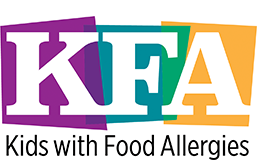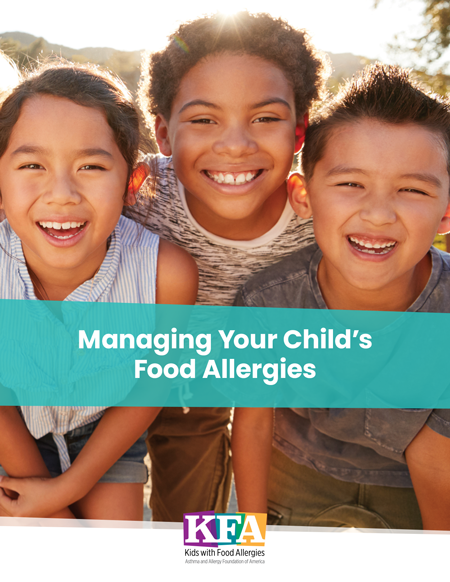Living with Food Allergies

Using a Food Diary to Help Find Food Allergy Triggers
Tracking down a food that’s causing an allergic reaction can be tricky. A food diary – or food symptom diary – may help you and your doctor figure out what might be triggering your child’s allergic reactions.
What Is a Food Diary?
A food diary is a record of what your child eats and what symptoms they feel. Your child’s doctor can use as part of the diagnosis process to narrow down a food allergy trigger.
A food diary is most helpful when your child is having symptoms but you don’t know what’s causing them. You mostly likely won’t need to keep a food diary if:
- Your child has already been diagnosed with a food allergy
- Your child has had a severe allergic reaction, called anaphylaxis [anna-fih-LACK-sis]
- If there are obvious symptoms after your child eats a certain food
If you think foods are causing symptoms such as stomach upset, headaches, rashes, fatigue, poor concentration, memory issues, or other symptoms, ask your doctor if a food diary or food journal would help.
If your child has symptoms of anaphylaxis, whether or not they have been diagnosed with a food allergy, give them epinephrine (if you have it) and call 911. If you know which food is causing anaphylaxis, do not continue to feed it to your child until you confirm the diagnosis with your child’s doctor. Anaphylaxis can be life-threatening.
Symptoms of anaphylaxis can include:
- Skin rashes and itching and hives
- Swelling of the lips, tongue, or throat
- Shortness of breath, trouble breathing, wheezing (whistling sound during breathing)
- Dizziness and/or fainting
- Stomach pain, vomiting, or diarrhea
- Feeling like something awful is about to happen
After anaphylaxis, schedule an appointment with your child’s doctor as soon as possible.
Closed
What Should You Record in a Food Diary?
To be most useful, a food diary should track:
- Exactly what your child ate and at what time of day – Include the number of servings they ate (based on what a normal serving size is for them). List specific ingredients of the dish. Include beverages too. List any vitamins, supplements, and medicines your child takes.For example, if your child had oatmeal for breakfast, you could write that they had “one serving of oatmeal with brown sugar, raisins, and almonds at 7:30 a.m.” You would not need to list the measurements of the ingredients though. You do not need to list calorie counts either. But you do need to record every food or drink they have, not just the main part of a meal or the primary food. Don’t forget to include condiments too.
- Your child’s symptoms and at what time of day – Be sure to include anything that doesn’t seem normal. Also, include what your child was doing at the time or recent activities. For example, was your child playing a sport or physically active when symptoms started?
Should the Food Diary Include the Ingredients of Packaged Foods?
Yes, you should write down all of the ingredients of packaged foods. To make this easier, you can save the package and cut out the ingredient list and attach it to the diary. Or if you are using a digital notetaking tool, you can take a picture of the ingredients with your smartphone.
How Will a Food Diary Help the Doctor Diagnose a Food Allergy?
When a doctor asks for a food symptom diary, they are looking for repeated patterns. For example, if your child vomits every time they have a food with milk in it, they may do more testing for milk allergy.
A food diary is not enough to diagnose a food allergy. It is another helpful tool to help your doctor understand what your child is experiencing.
What Are Other Ways to Use a Food Diary?
You can use a food diary for many purposes. For example, you can use it when working with a dietitian. The dietitian can review a food diary to tell if your child is getting enough calories and nutrition.
Medical Review: December 2022 by Michael Pistiner, MD, MMSc
Ask the Allergist
Have a question on managing food allergies, asthma, other allergic conditions? Our allergist can help.












